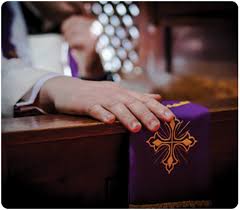
Have the Sacrament of Penance among “your primary responsibilities”: Catholic Bishop in Nigeria to Priests
Bishop Godfrey Igwebuike Onah of Nigeria’s Catholic Diocese of Nsukka is calling upon Priests in his Episcopal See to give the people of God the opportunity to confess regularly by including the Sacrament of Penance in their day-to-day programs.
In his homily while on retreat with Priests at Holy Rosary Retreat and Conference Centre, Nsukka, Bishop Onah criticized the practice of Priests reducing “the Sacrament of Penance to an appendix after morning Mass.”
“If you as Catholic Priests have been given the authority by Christ to forgive sins, put that among your primary responsibilities,” the Nigerian Bishop emphasized in the video published Thursday, July 4.
He added, “Please, recreate the opportunity; invite the people of God not just after morning Mass but every day and on many occasions to realize and recognize their unworthiness and (the need to) ask for forgiveness.”
“Create time. Bear in mind that is the only power a Priest never loses even when he has been laicized, that is, to forgive sins in the emergency in the danger of death; that shows how important it is in our lives,” Bishop Onah insisted.
Not availing the Sacrament of Penance to the people of God regularly can cause them to lose the “sense of guilt”, the Nigerian Catholic Bishop, who was celebrating his 11th Episcopal Anniversary on July 4 warned.
He continued, “If you allow the people to lose the sense of guilt, it will not be long before they lose the sense of the sacred, because it is standing before the sacred that you feel your worthiness and the need to ask for forgiveness.”
“Some people have been so dead in their conscience,” the Nigerian Catholic Church leader lamented, and called for such people to be challenged “to go to confession for their salvation and your salvation; that’s what friends are for; that is what fraternal communion enjoins us to do.”
In his homily during the July 4 celebration, Bishop Onah also cautioned members of the Clergy against “sibling or professional rivalry and envy”, and added, “Very often you may not even know you are already a victim; you are already an agent of rival and envy.”
“You may think you are being objective when you are envious of what you may consider the achievement of another Priest,” he observed.



Leave a Comment